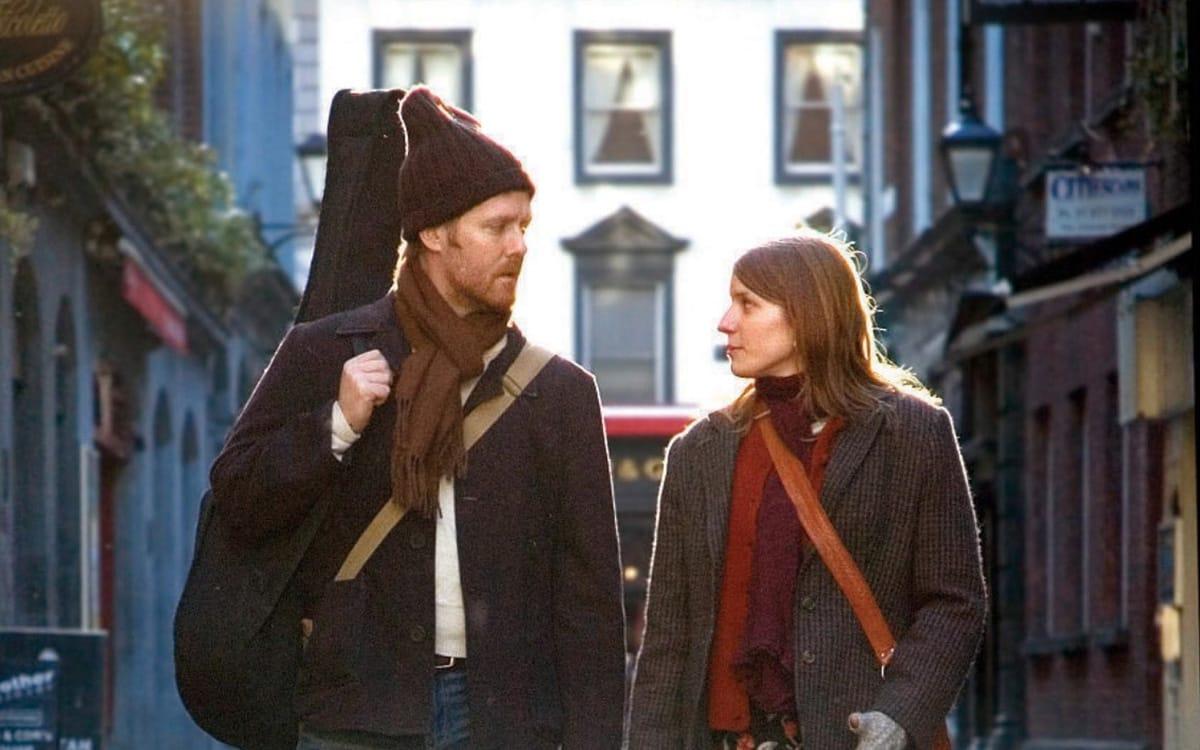Once by John Carney (Review)

Renae and I finally got around to catching Once last night, and we enjoyed it quite a bit. The film caused quite a stir on the festival circuit, garnering the “Audience” award at this year’s Sundance Festival, and it’s easy to see why. It’s a very fetching little film, a musical romance that eschews the usual tropes associated with both musicals and romances, instead opting for a much more subdued, realistic, and sympathetic approach.
Since walking out of The Ross, the movie’s been on my mind, so I thought I’d jot down a few random thoughts and observations on the film (and I’ll try to avoid spoilers).
For starters, the film made me very nostalgic for the days when I used to be in a band. While the movie portrays the experience in a uniformly rosy manner, which isn’t the way it usually happens — I can remember times during practice when I was sorely tempted to chuck my guitar at one of my bandmates — the scenes of Glen Hansard (lead singer of The Frames, and the male lead) and his friends jamming together, melding somehow into one and creating something much greater than the sum of its parts were just beautiful.
On a related note, there’s a scene at a dinner party where the patrons have to literally sing for their supper, that reminded me of living at the mighty “Opus House.” My roommates and I were all in bands, and all of our equipment was set up in the basement. Late night jam sessions weren’t an uncommon occurrence. Friends would come over, someone would inevitably hop on the drumkit, everyone would join in, and the ensuing racket would continue on into the wee hours of the night. (Thankfully, we lived next to a very busy street so none of the neighbors could really hear us.)
As much as Once is a celebration of art and the creative process, I appreciated its “bravery” in pointing out that there are other things — taking care of a child, helping out your family, attempting to salvage relationships — that are just as important, perhaps even moreso. Which does nothing to undermine or demean the art and creativity, but I do think it does place such things within a better and more proper context.
At the same time, I appreciated that the movie was honest enough about the attraction between the main characters (Hansard and his real life girlfriend, Markéta Irglová). It doesn’t deny that there is indeed some tension between them, which makes the story as compelling as it is. However, neither does it deny that the characters are mature enough to realize that pursuing that attraction is not without its consequences, both for their art and for everything else in their lives.
It speaks faithfully to the fact that there are relationships that are, for all intents and purposes, “romantic”, but that are also chaste. Relationships that are the richer, and the purer, for not having given in to temptation and desire. Which is not to say that giving in would be wrong or sinful — but it just wouldn’t be right.
And I found myself wondering about the movie’s tagline: “How often do you find the right person?” Usually, a line like that would be used within a stereotypically sappy romantic context. But here, it seems to apply more to the creative process. In that regard, the Guy and the Girl — the characters are left unnamed — were the right person for each other. She was what he needed to encourage him to pursue and realize his musical endeavors. His role in her life is perhaps a little less well-defined, but I think it was to provide a measure of stability to her life, and to reawaken her to the joy of composing.
And finally, that scene where the two leads are in the music shop, feeling and improvising their way through one of his songs, and by extension, their fledgling relationship — that was just one of those perfect moments for me. A moment that was helped, no doubt, by the lovely music. In hindsight, it’s an incredibly poignant scene, not just because of its place within the storyline and all that it represents, but also because of the perfect blending of sight and sound.
Once isn’t a perfect film — there are a few subplots that I wish would’ve been fleshed out a bit more. But I think that just speaks to the movie’s strengths, and just how much I believed the movie. I wanted more because I actually found these characters, and the world in which they lived, genuinely likable and worth knowing deeply. So while it’s not perfect, it is a definite gem.
On a sidenote, I’m currently hoping to get my church’s movie discussion group back up and running for the fall. I’m planning on our first theme being movies about art, artists, and creativity, and I think Once would be a perfect fit. Sadly, Once will probably be gone from The Ross before the group starts back up, and I doubt it’ll be released on DVD in time.
So for what it’s worth, Lincolnites, go see it before it leaves The Ross. Go see it with some friends, and afterwards, spend some time talking about art and creativity, and how those things can draw us together in surprisingly deep ways.